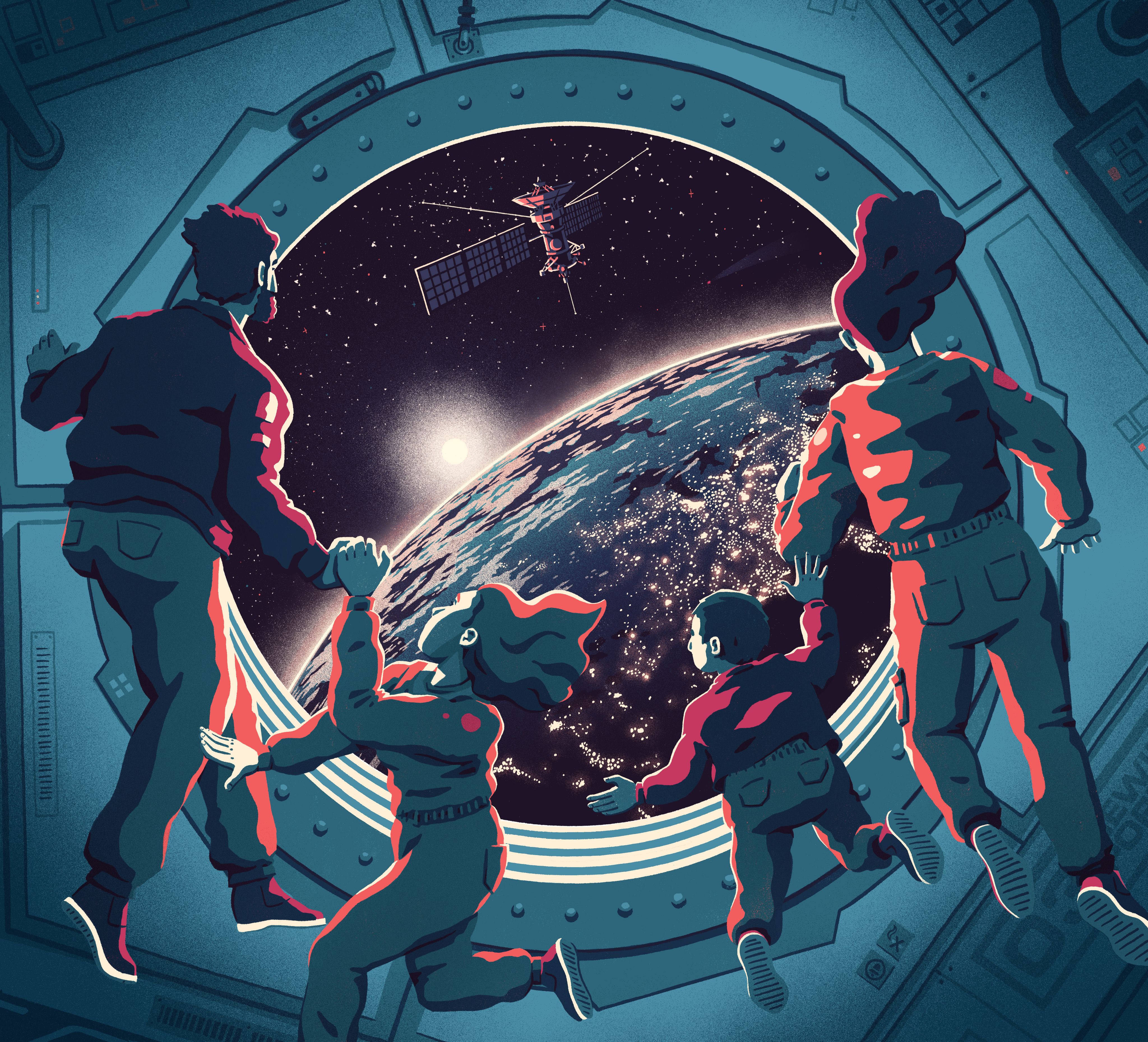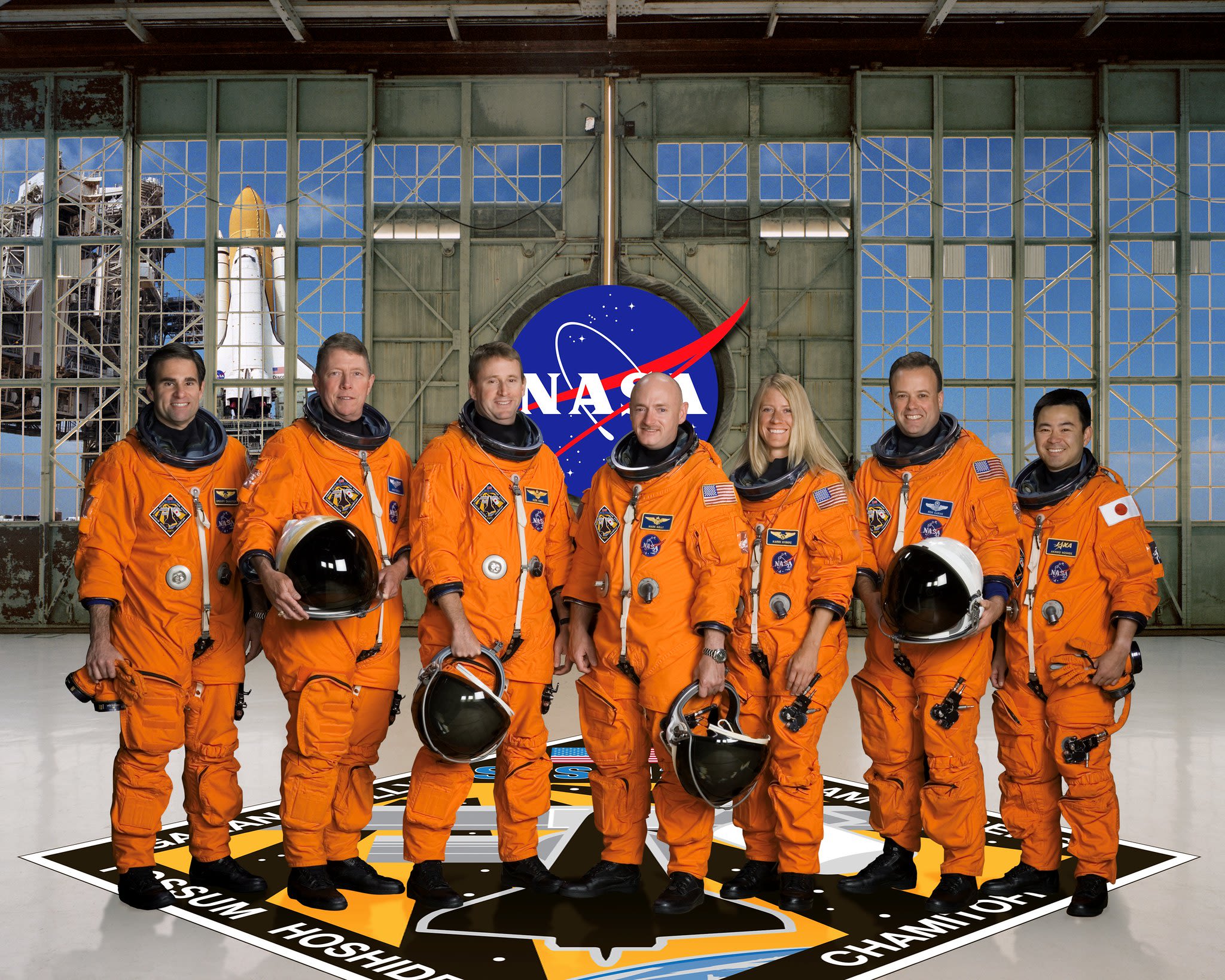Space Is Cool. But It’s No Replacement for Our Home Planet.
UH alum and astronaut Aki Hoshide gives us a glimpse into his space missions and thoughts on the future of space travel.
By Aki Hoshide as told to Alexandra Clark

Imagine planning your summer vacation 10 years from now: Will you go to Paris? Cape Town? Maybe to a space station? I am an astronaut with the Japanese Aerospace Exploration Agency and a graduate of the University of Houston’s Cullen College of Engineering. I encourage you to take seriously option number three. You may well have the chance to journey into space within your lifetime.
I was born and grew up in Japan but spent a few years in New Jersey when I was small. For summer vacation one year, my dad took me down to Kennedy Space Center in Florida. I was hooked and started dreaming of becoming an astronaut.
Years later, I applied to join the Japanese Aerospace Exploration Agency (JAXA) as an astronaut, but I lacked certain qualifications. So, after graduating college, I joined the agency as an engineer instead. A few years into my career, I still had my eye on becoming an astronaut, and I asked for a year off to earn a master’s degree and fill my knowledge gaps. My boss approved the request on the condition that I continued supporting JAXA astronauts in Houston while I earned my degree. (JAXA was busy at the time, and we have a Houston office that collaborates substantially with NASA’s Johnson Space Center.)
It was a deal. I worked at JAXA’s Houston outpost and studied at the Cullen College of Engineering, which was great, because many of my classmates were in the space program. I still run into those old classmates and get to share in their experiences. It’s something special.
And—with study and perseverance—I became an astronaut at last.
I now have three space missions under my belt. The first was a two-week shuttle mission. The second was a four-month International Space Station mission. And the latest was a 200-day mission to the ISS, during which I served as station commander. I returned home in November 2021.
Space station missions have a small crew—seven of us on my latest trip. We undergo extensive training together before we leave. We learn mission-specific skills: space walks, robotic arms and the relevant science. We also train so that we can handle our own station maintenance and medical needs. There’s no doctor or mechanic just down the block when we’re in space.
And we learn a philosophy of teamwork. If something fails, if someone has a need, whomever is available immediately addresses the issue. An alarm goes off, and we take action. The space station is large enough that crewmates might not see each other during the workday. Speakers and communication devices throughout the station allow us to hear each other, so we’re alerted when a crewmate needs assistance. The crew on my latest mission excelled when it came to helping each other out.
Science is primary on the space station. As a crew, we take on various tasks from morning through afternoon, and every day is different. On this last mission, I performed more than 100 experiments across various specialties—medical science, biology, material science, fluid mechanics and Earth observation. We’re developing technology to travel to the moon and to Mars. There’s a lot going on.
It’s hard work, but it’s not all work. The seven of us had a great time together—movie nights and lots of laughs. As commander, I was looking out to make sure that everyone was comfortable and felt well cared for. There’s also a strong support structure on the ground that ensures we’re doing okay with the isolation, communicating with our families and feeling psychologically strong.
“The brilliance of space travel is worth the time away.”
The brilliance of space travel is worth the time away. I think back to what a huge impact space travel had on the first astronauts. Even today, each of us who gets to travel into space experiences a shift in perspective. At one point on this latest trip, I was looking into the vast darkness of space, admiring it all, when suddenly I felt I was getting sucked into outer space. It was frightening. I was inside the space station—nothing was happening to me—but I had the fearsome sensation that space is just a huge black hole. Then I looked down at Earth, so comforting and reliable.
At that moment, I felt—didn’t think, but felt—that without Earth, we cannot live away from the planet. I’m a big believer that humankind needs to go explore and that, eventually, we will journey into space. But it can only happen if we have Earth, have it safe and sound. In that moment, I felt immense appreciation for Earth as home. Back on Earth now, I try to be ecologically correct. I think about my impact on the environment more since returning from space.
Space travel is an experience I recommend to anyone. Commercial space stations may be a reality within the next 10 years. Fifty years ago, it was prohibitively expensive to travel abroad, and very few people went overseas. But now it’s common to visit different countries and to experience foreign cultures. I hope it will be like that with space; we in the profession are happy to support increased space travel.
Should you make the journey if you can? Absolutely, you should. You can’t escape gravity in Paris!
UH alum Aki Hoshide takes a selfie during a space walk. Photo courtesy of NASA
UH alum Aki Hoshide takes a selfie during a space walk. Photo courtesy of NASA
Photo courtesy of NASA
Photo courtesy of NASA
Aki Hoshide (pictured at far right) with his International Space Station crew. Photo courtesy of NASA
Aki Hoshide (pictured at far right) with his International Space Station crew. Photo courtesy of NASA
Aki Hoshide is an engineer, Japanese Aerospace Exploration Agency astronaut and former commander of the International Space Station. He earned his Master of Science in aerospace engineering from the University of Houston Cullen College of Engineering.





